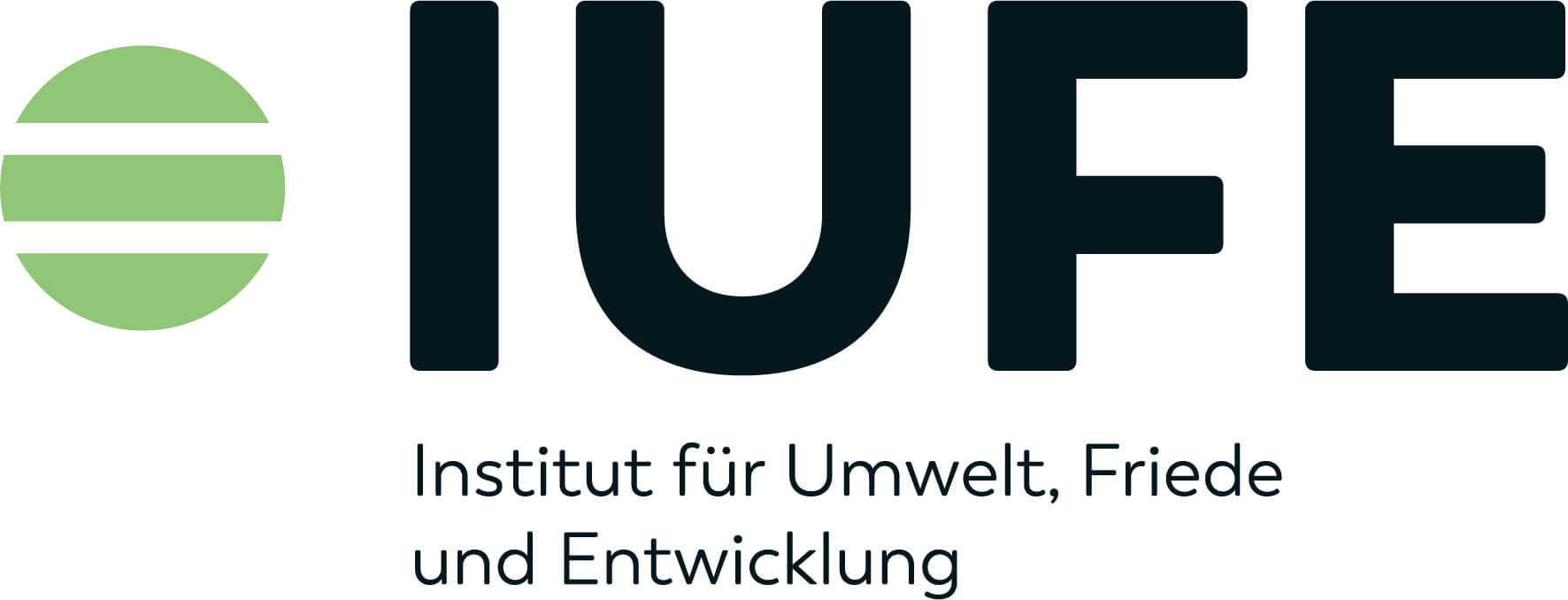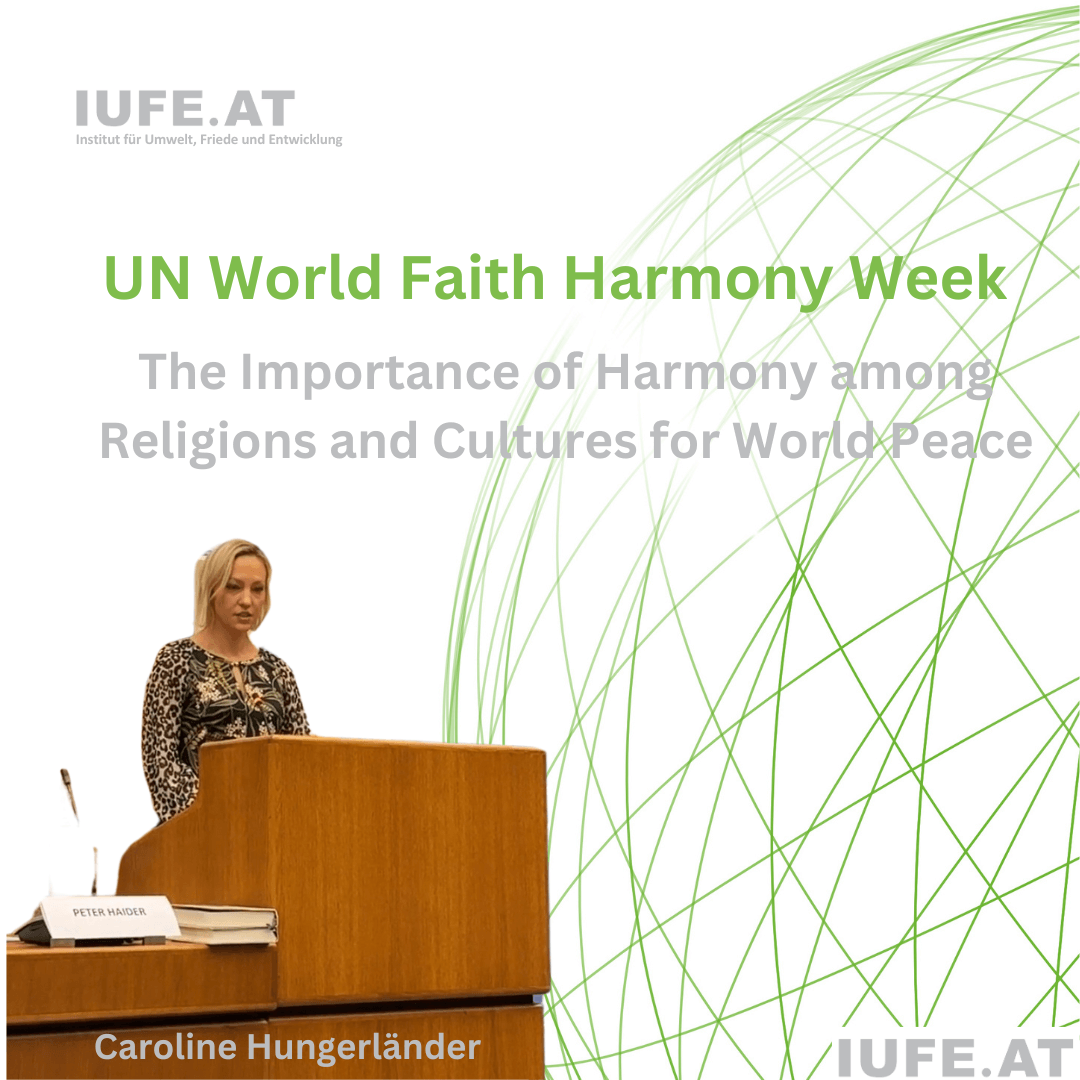Rede im Rahmen der UN World Interfaith Harmony Week auf Einladung der World Peace Federation
Excellencies, Ladies and Gentlemen, Esteemed Guests
It is a great honor for our small institute to have the opportunity to address such a distinguished audience, especially on a subject of such profound significance.
Today, I speak to you in two capacities: first, as the Executive Director of the Institute for Environment, Peace, and Development, a publicly funded, Vienna-based NGO dedicated to development cooperation and peacebuilding. Secondly, I address you as a person of faith.
Does a believer speak differently about the importance of harmony between religions and cultures than a secular individual? Perhaps. Allow me to share two reflections, fully aware of my own biases and the limitations of my knowledge.
First Reflection: The External and Internal Perspectives on Religion
From an external perspective – which is a secular viewpoint – there is a tendency to downplay the differences between religions. Harmony is often equated with homogenization, and world peace is perceived as a universal goal shared by all faiths. The emphasis is placed on alleged commonalities: tolerance, respect, human rights, and a shared human essence.
This sounds both appealing and reassuring. But can we truly agree on it? Those who do not see faith as a claim to truth and those who regard religion – at best – as a source of comfort and – at worst – as an opiate for the masses, may well endorse this view: let us live in harmony as one humanity.
Unfortunately, given the current status of our world, this vision, however noble, remains idealistic – almost utopian.
From an internal perspective, however, religious differences are not just real but they are fundamental. They shape our understanding of human nature, our conception of the divine, our societal structures, and our culture.
Religions answer the most profound existential questions in different ways, and these answers have inherent, undeniable, and significant consequences for the lives of believers and their societies:
- What is the nature of the divine? Is God a loving being? A vengeful one? A merciful one? What is His relationship with humanity? Does He intervene in human affairs? Does He demand obedience and submission, or does He grant free will and allow for error? Does He punish, or does He forgive?
- What is the religious conception of history? Is it linear or cyclical? Do believers await salvation, or is history an eternal recurrence, like a wheel? Is the religion collectivist or individualistic?
Distinguished guests, I ask you not to dismiss these questions as trivial. They illustrate the profound differences between religions and the diverse cultural, societal, and worldviews they engender.
Recognizing these differences and their impact is, for my Institute, essential for a realistic understanding of both our world and human nature. It is the very foundation upon which my Institute builds its work.
Is Religious Harmony Truly Possible?
I do not wish to downplay the challenges—on the contrary, they are undeniable. Allow me to cite two examples:
- Two of the three great monotheistic religions are inherently missionary in nature. Bringing others to God is an integral aspect of these faiths. Must missionary activity be prohibited to ensure harmony?
- Some religions distinguish between believers and non-believers in ways that shape societal norms and interactions. Must such distinctions be outlawed for the sake of harmony?
Second Reflection: The Role of Religious Individuals
Thus far, I have spoken about religions. Allow me now to turn to religious individuals. My second reflection pertains to shared values among believers.
Europe has learned through painful history that the absence of religion can lead to immense human suffering. When an overarching moral framework is absent, omnipotent and arbitrary rulers become possible. History should have taught us that humanity does not make a good god unto itself.
Believers, and this may be a commonality, do not see human beings as the ultimate authority. I would venture to say that religious individuals share a certain humility in the face of their own humanity.
The second communality is a rather practical one. Those who believe in a divine presence constitute the absolute majority of the world’s population. By estimates, 80–85% of people worldwide belong to an organized religion. This overwhelming presence of faith in human societies suggests that religion remains a key force shaping cultures, ethics, and worldviews. Though often overlooked in the West, faith in a higher power remains a defining force for the majority of humankind.
Given this reality, one might ask: Does such a dominant role of religion in society make harmony more likely—or does it instead entrench divisions?
Let me come back to the beginning. From an external perspective, one might argue that peaceful coexistence is possible. From an internal perspective, however, one must acknowledge that there are irreconcilable differences.
Is this problematic?
From the viewpoint of a secular utopia, perhaps. But given human nature, not necessarily.
Conclusion: A Realistic Approach to Harmony
Perhaps harmony does not mean the absence of any conflict, but rather the ability to manage differences without resorting to violence or oppression. Instead of seeking to homogenize religious beliefs, we should accept and respect their differences. Harmony does not require full agreement – it requires an understanding that religion shapes culture and society in profound ways.
Perhaps, in addressing the great challenges of the 21st century, cooperation – despite differences – must be the goal, not only between religions but also among the people of faith who uphold them.
Through mutual recognition of our differences and a commitment to peaceful engagement, we can strive for a world where religious diversity does not lead to division, but to a shared effort in fostering stability and coexistence.
Mag. Caroline Hungerländer, MSc (IUFE Managing Director)



